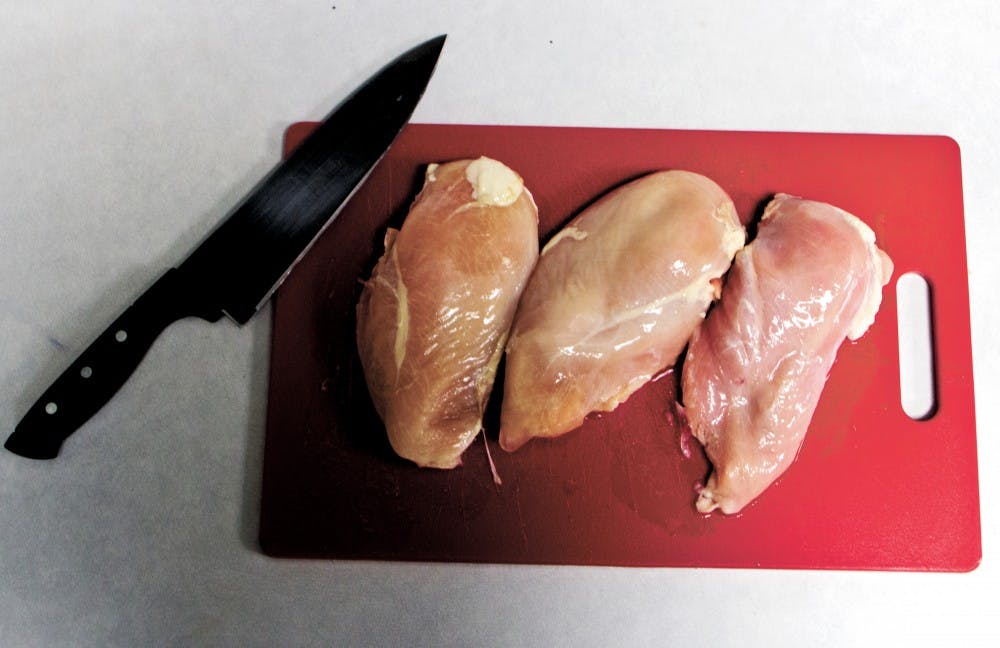Most CMU food facilities receive clean inspections, Mount Pleasant violations more severe
While food items sold at Central Michigan University are safely prepared, other student-favorites in Mount Pleasant were less clean, according to recent county-wide health inspections.
Of 13 different food service facilities on campus, only one received a poor mark during the last year of health inspections. The Towers Real Food on Campus cafeteria, received a priority violation in November 2014.
The violation was for “potentially hazardous food.” The RFoC prepares garlic butter sauce with fresh garlic in house for its pizza line. Health inspectors found the butter held at room temperature, which is a violation — fresh food products must be temperature controlled.
Eleven restaurants around the city received violations within the last year. Some of these violations could have posed health risks.
Restaurants cited for violations include Big Apple Bagels, Buffalo Wild Wings, the Subway location on 2nd Street and Riverwood Recreation’s food vendor. In addition, Hunan House, China Garden and Great Wall received violations that inspectors determined could make its patrons ill.
Violations at these restaurants range from keeping food in Rubbermaid totes, to improperly thawed meats or items kept longer than their expiration date.
Anatomy of an inspection
Not all health code violations will make a customer sick, said Scott Jones, environmental health supervisor for the Isabella County Health Department.
Health inspectors use a three-tiered system to categorize violations. Jones said priority violations pose imminent risks and core violations have little-to-no bearing on patron health. This can include food held at the wrong temperature or storing raw, blood-dripping meats above cooked and ready-to-use foods.
A priority foundation violation is the middle ground between the two. Priority foundation items usually have to do with equipment, like not having functioning food thermometers or sanitizer strength test strips. A core violation can be something as simple as a dirty floor.
The inspections are risk-based, and the frequency of an inspection depends on the menu. Most fast food restaurants require only annual inspections because much of the food is already cooked, frozen and then reheated, Jones said. This poses far less risk for food-borne illnesses than a restaurant that has a complex menu and prepares raw and cooked foods simultaneously.
“If you have place that only serves coffee, there’s an extremely low risk because they handle no hazardous foods besides maybe milk,” Jones said. “If you have say something like an Olive Garden, that’s high-risk based because there are fresh foods along with prepped foods that are cooked and then cooled.”
These higher risk restaurants state must receive inspections at least every six months.
“If you’re familiar with the menus, and I’ve been here for 21 years, some of that inspection gets shortened by knowing exactly what the facility does,” Jones said. “We’ll interview the management and go over how they serve, prep, cool and reheat foods. We’ll also review employee health procedures.”
The next step in the process is the actual inspection. An inspector will walk through the facility and review the standards set in the interview. Inspectors then offer a report of their findings to the manager.
If a violation is found, a follow up inspection is then required as well. If it’s something minor like a core item, the follow up inspection can often take place during the restaurant’s next scheduled inspection date. Any priority or priority foundation item must be followed up on by an inspector 30 days from the date of the violation, Jones said.
Inspectors work with restaurants to resolve health issues.
“If violations occur (during an inspection) and there’s a history of past violations, there’s an administrative process to revoke the license,” he said. “It all depends on how much someone wants to do. If they want to stay open, they’ll correct their issues.”
For a full list of inspection results, visit the Central Michigan District Health Department website.




